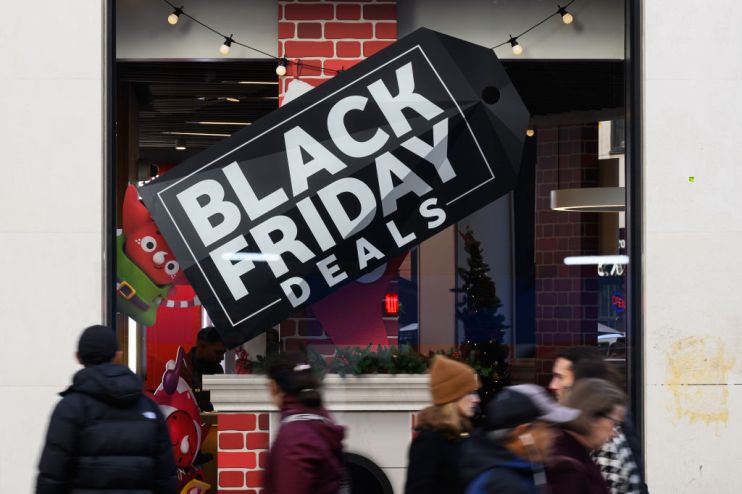If retail execs didn’t already know it, Black Friday is finally over

We stole Black Friday from the US, and the Americanism is falling out of favour with Brits getting a few pennies off, writes Simon Neville
THE birth and death of Black Friday in the UK will soon be consigned to a short chapter in the history of the high street, if last Friday’s “event” was anything to go by.
It’s incredible to think it was only nine years ago when Asda thought it wise to follow the lead of its US overlords at the time – Walmart – and offer up loss-making deals on TVs and tech. What followed would be a textbook example that what works in the US won’t always work over here.
To ensure this epic marketing fail would be captured for all eternity, Asda invited the UK’s media to record and witness the 2014 event in Wembley; those pictures would be across every newspaper’s front page the following morning for all the wrong reasons.
A stampede ensued, shoppers trampled over each other for bargain vacuum cleaners and physical fights broke out between customers, leading to police being called. The videos are still online and they are insane.
In Edmonton, north London, Tesco opened its superstore at midnight with the promise of cheap TVs too.
Evidently, head office didn’t think to find out what happened when Ikea opened a new store of its own in nearby Tottenham at midnight a year earlier. On that occasion there were reports of stabbings over sofas.
Newspapers launched rolling live blogs of events unfolding on Black Friday, as police revealed they had received callouts to 15 Tesco stores that opened at midnight. Politicians got involved and sheepish executives promised to put more thought into future events.
And here we are, less than a decade on and those thoughts have morphed into arguably one of the dullest Black Fridays ever. Retailers appear to have given up and I would struggle to find a single executive who would say they sold products at a loss. Black Friday is now just another sale event with little effort made to increase stock levels beyond normal. Everything is now sold at a profit with little bit of a discount.
In fact, the only people seemingly interested in Black Friday last week were marketing departments weighing up how many hours would be appropriate to wait between sending another email with promises of deals.
Personally, I enjoyed Black Friday because it encouraged me to unsubscribe from every marketing email I had inadvertently signed up to.
The biggest beneficiaries from the event appear to be consumer advice magazine Which? who garnered more coverage on their annual “Black Friday deals aren’t all they’re cracked up to be” lists than the number of stories about Black Friday itself. And that’s the point. When articles about the end of a craze get more eyeballs than the event itself, surely the game is up?
There was a short period during the pandemic when online retailers enjoyed a Black Friday boost in sales on big ticket items like new TVs, sofas and fridges as the middle classes built up savings because they couldn’t spend their cash in bars or on holidays. Black Friday in 2020 was a raging success and the last time retailers put in real effort.
But 2021 was a let-down, because, unsurprisingly, shoppers wanted to go out again, leading retailers to entrench further as some mistakenly thought Black Friday would only ever grow.
Since then, the event has become meaningless. Soaring inflation and rising interest rates have left retailers unable to secure deals and customers being more cautious with their spending.
This year must surely be the end of the road. Retailers must now know that shoppers are too savvy to get taken in with year round deals presented as something different because it’s the end of November. If retailers can’t see it’s over, then what else are they kidding themselves about?
So, farewell then, Black Friday. Whilst we only knew you briefly, let us not forget the fights over tellies and just hope those screens continue to flicker longer than you did.